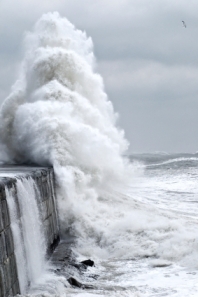 Trial practice is an art of managing your discovery, knowing your calendar deadlines and pulling part your opponent’s case by striking their key exhibits with motions in limine.
Trial practice is an art of managing your discovery, knowing your calendar deadlines and pulling part your opponent’s case by striking their key exhibits with motions in limine.
The following motions from Debose v. Broward Health to exclude two of the Plaintiffs’ witnesses and late disclosed Defense email messages sounds like the Battle of the Somme: Everyone lost.
Procedural History: Into the Quagmire
The Defendant’s initial disclosures did not include 254 emails between the Plaintiffs and their supervisors. The Plaintiffs moved to exclude these emails from the trial. Debose v. Broward Health, 2009 U.S. Dist. LEXIS 45546, 7-8 (S.D. Fla. May 20, 2009).
The Defendant’s claimed that the emails related to the issue of unpaid hours for meal breaks, which they claimed were not raised until the Plaintiffs’ depositions a month before the hearing. Debose, 5.
The Defendant’s brought a motion to exclude the Plaintiffs’ late disclosed witnesses.
Initial Disclosures
Initial Disclosures are mandated by Federal Rule of Civil Procedure Rule 26. They are made without any sort of request. The initial disclosures must include the name and contact information of any individual “likely to have discoverable information” that can support a claim or defense. Debose, 11-12.
The Rule has one big exception: if the documents or ESI is being used for impeachment, it does not need to be in the initial disclosures. Debose, 12.
Federal Rule of Civil Procedure Rule 37 empowers a court to strike all or part of a pleading if a party fails to meet their discovery obligations. Debose, 12. A court engages in the following three part analysis in deciding to sanction a party by excluding an untimely disclosed witness’ testimony:
(1) The importance of the testimony;
(2) The reason for the failure to disclose the witness earlier; and
(3) The prejudice to the opposing party if the witness had been allowed to testify. Debose, 12-13.
Into the Storm: Applying the Law to the Facts
 The Court held the Defendants were on notice back in December 2008 that Plaintiffs’ claims included lunch/meal break payments. The Court also found the argument the Defendants learned of “new claims” during the Plaintiffs’ deposition to be without merit. Debose, 13-14.
The Court held the Defendants were on notice back in December 2008 that Plaintiffs’ claims included lunch/meal break payments. The Court also found the argument the Defendants learned of “new claims” during the Plaintiffs’ deposition to be without merit. Debose, 13-14.
The Defendants should have included the email messages in their initial disclosures. Since the emails were not disclosed, the Defendants were barred from using the email messages to support their defenses. Debose, 14.
Impeaching the Plaintiffs was a different story. Federal Rule of Civil Procedure Rule 26 does not require disclosure of documents or ESI that will only be used for impeachment. Debose, 15.
People in Glass Houses: The Plaintiffs’ Late Disclosed Witnesses
The Plaintiffs had their own procedural problems with two late disclosed witnesses lacking any sort of valid reason. Debose, 15-16. Compounding the issue, the Court noted the new witnesses’ testimony appeared cumulative of the other 40 disclosed witnesses. Debose, 16.
Given the three part test of 1) testimonial importance 2) valid reason for late disclosure and 3) Prejudicial effect on the Defendant with allowing the testimony, the Court excluded the witnesses from testifying.
Leveraging the Rules of Civil Procedure
 Lawyers are well suited to follow the disclosure requirements mandated by the Federal (or their state) Rules of Civil Procedure.
Lawyers are well suited to follow the disclosure requirements mandated by the Federal (or their state) Rules of Civil Procedure.
Not doing so can result in key exhibits or witnesses being eliminated from your case in chief.
